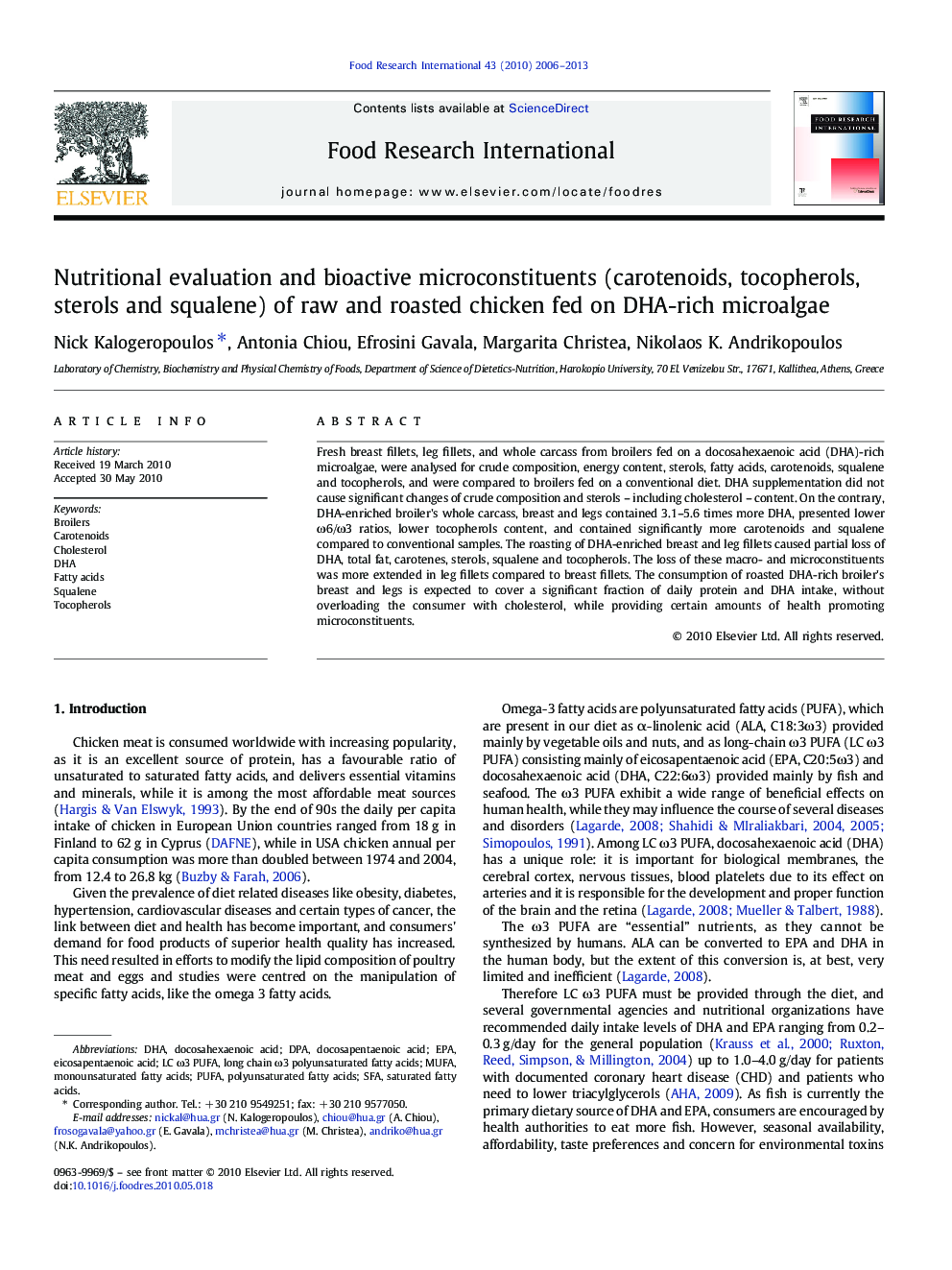| Article ID | Journal | Published Year | Pages | File Type |
|---|---|---|---|---|
| 4562463 | Food Research International | 2013 | 8 Pages |
Fresh breast fillets, leg fillets, and whole carcass from broilers fed on a docosahexaenoic acid (DHA)-rich microalgae, were analysed for crude composition, energy content, sterols, fatty acids, carotenoids, squalene and tocopherols, and were compared to broilers fed on a conventional diet. DHA supplementation did not cause significant changes of crude composition and sterols – including cholesterol – content. On the contrary, DHA-enriched broiler's whole carcass, breast and legs contained 3.1–5.6 times more DHA, presented lower ω6/ω3 ratios, lower tocopherols content, and contained significantly more carotenoids and squalene compared to conventional samples. The roasting of DHA-enriched breast and leg fillets caused partial loss of DHA, total fat, carotenes, sterols, squalene and tocopherols. The loss of these macro- and microconstituents was more extended in leg fillets compared to breast fillets. The consumption of roasted DHA-rich broiler's breast and legs is expected to cover a significant fraction of daily protein and DHA intake, without overloading the consumer with cholesterol, while providing certain amounts of health promoting microconstituents.
